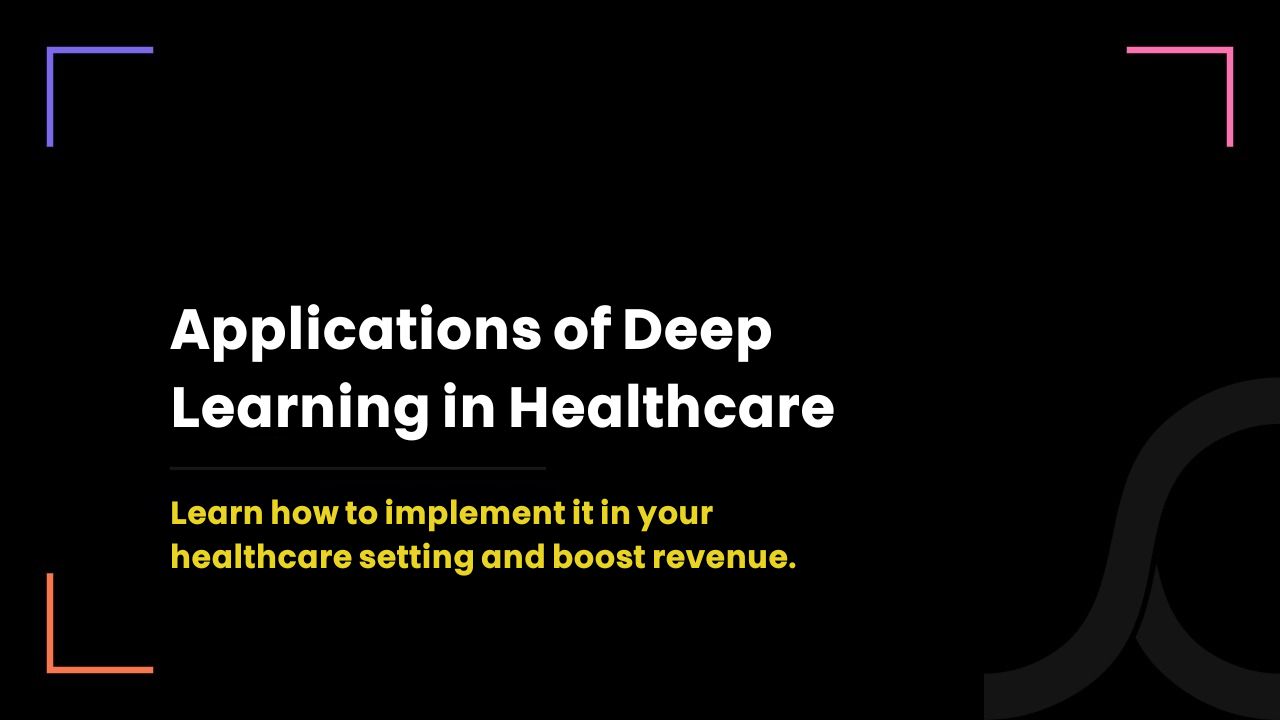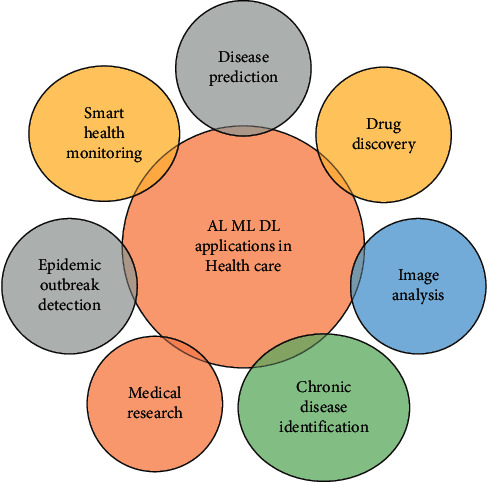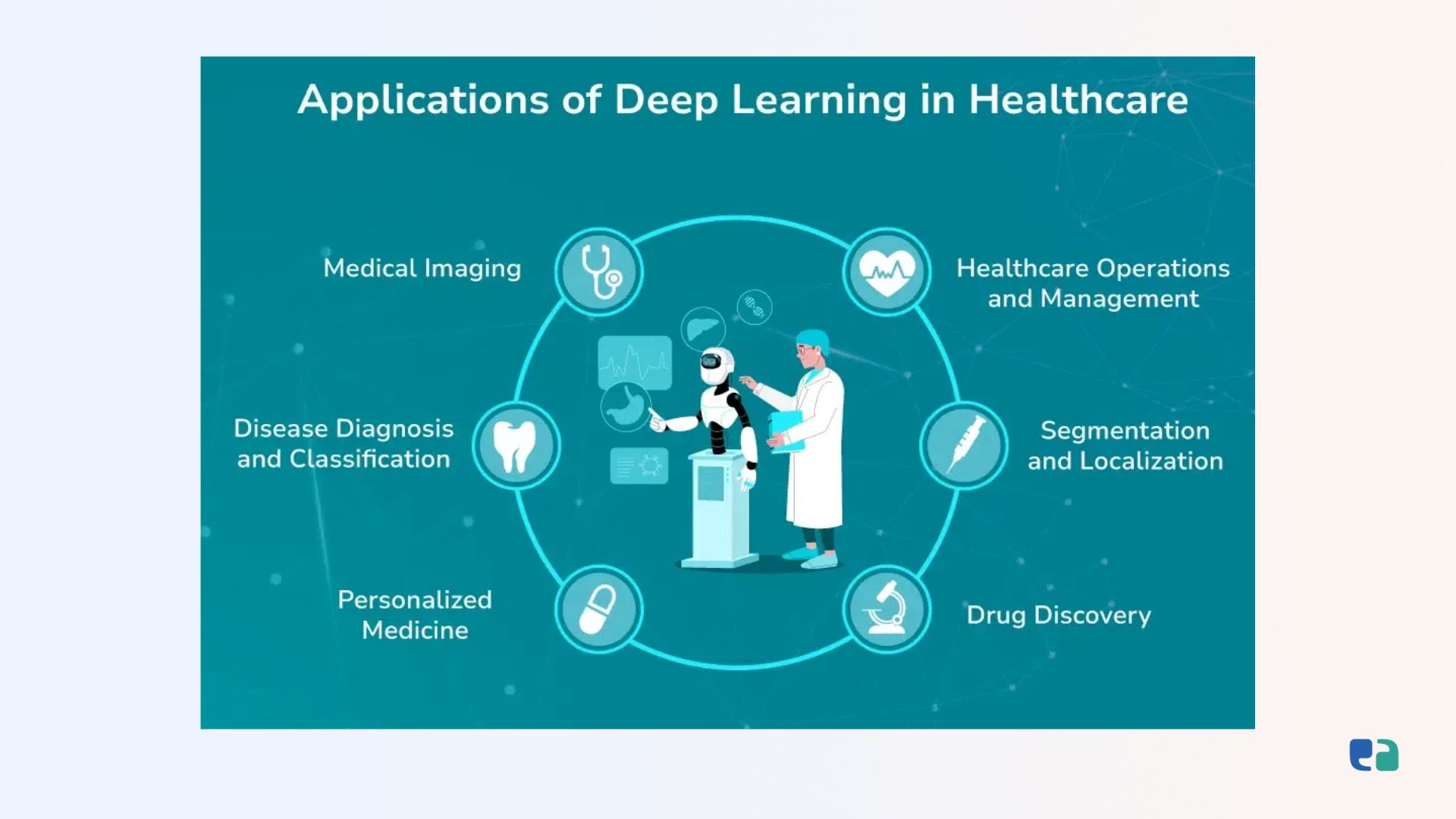How to Implement Deep Learning in Healthcare Practice: Top Features and Applications

11 months ago
Hello Doctors…
You always complain about how busy your schedule is, you don't get the perfect assistance you need, and so much more…
Well, we have some good news for you.
You got a new smart assistant in healthcare, named Deep Learning (DL).
A new branch of AI that can assist you in many ways and free up some time that you can spend with your family.
Machine learning is so good that it can detect diabetic retinopathy in eye scans with great accuracy.
And it's not just that—there are many applications of deep learning in healthcare that are working wonders for healthcare providers, including:
- Medical records
- Images
- Genetic data
- Sensor readings and more
What is Deep Learning?
It works by using something called artificial neural networks, which is similar to how our brains function.
A tech inspired by our brain.
It's a great technology that automatically learns patterns from big databases. You don't need to set any specific rules.
Deep Learning provides some important insights that are very hard to find through the human mind.

Benefits of Deep Learning in Healthcare & Why You Should Invest in It
Healthcare is changing quite fast, and there is competition among healthcare companies to provide better patient care and stay ahead in the market. For them, implementing deep learning is a must.
1. Better Diagnoses
There are many things that the human mind can't do alone, and deep learning can handle them smartly—for example, medical images, genetic data, and patient records.
The best part is that it does so with precision, accuracy, and in less time.
2. Personalized Care
Deep learning can create a personalized treatment plan by analyzing a patient's medical history and genetic makeup. Each patient has unique needs, and deep learning prepares a tailored treatment.
3. Boosted Efficiency
When it comes to administrative tasks, it's your favorite staff member. It automates tasks, simplifies workflows, and makes better use of resources.
Smoother operations mean cost cutting.
4. Improved Patient Outcomes
Deep learning keeps a close eye on healthcare operations and patient treatment. As a result, it provides insightful information that can be used to create better treatments and improve patient care.

Deep Learning Market Growth in Canada
Like other countries, the machine learning market is also growing in Canada.
In 2024, it reached $1.78 billion, and it's just the beginning.
The market is projected to grow by 36% each year, reaching $11.27 billion by 2030.
If we take the example of the USA, the value of deep learning has reached $21.14 billion.
For healthcare startups, it's a lucrative opportunity to build innovative deep learning products in healthcare.

Use Cases Of Deep Learning In Healthcare
Let's look at some of the real-world applications of deep learning that are making waves in healthcare and improving patient care.
1. Medical Imaging and Diagnostics
Medical images like X-rays, MRIs, and CT scans require a good amount of analysis power for better diagnosis.
And deep learning is doing it beautifully.
Its robust algorithms detect diseases, map out specific areas in images, and even assist in surgery planning.
Isn't it great?
Examples
- Breast cancer detection using mammograms and MRIs (Google's DeepMind, IBM Watson Health).
- Lung disease diagnosis from chest X-rays and CT scans (NVIDIA Clara).
- Diabetic retinopathy detection from eye scans (DeepMind).

2. Predictive Analytics and Risk Assessment
Deep learning has the ability to read large databases of patient history and detect patterns within them.
It helps forecast patient outcomes, such as the risk of readmission or disease progression.
Examples
- Predicting blood glucose levels in diabetic patients (Medtronic's Guardian Connect).
3. Personalized Medicine
Deep learning preparea treatment plans by analyzing genetic makeup, medical history and clinical data.
Examples
- Customizing cancer treatments through genomic analysis.
- Predicting drug responses to speed up drug discovery.

4. Natural Language Processing (NLP)
Reading clinical notes and medical literature is quite a challenging task. But if you combine deep learning with NLP, it's a completely different picture.
They process the unstructured text and explain it in simple, readable language.
Examples
- Automating clinical documentation.
- Matching patients to clinical trials.
5. Robotics and Surgery
Robotic-assisted surgery is becoming more accurate thanks to deep learning.
Examples
- The da Vinci Surgical System helps surgeons perform minimally invasive procedures.
- Health Insurance:
- Deep learning supports underwriting and fraud detection by analyzing health data and claims history.
6. Mental Health and Pandemic Response
In mental health research, it's an amazing tool.
And let's not forget COVID-19, which threatened all of us but can now be controlled with this. Deep learning can detect the virus early and predict critical care needs.

How to Implement Deep Learning in Healthcare: A Strategic Guide
Implementing deep learning needs expert guidance, it's good if you take help from health-tech experts. However, let's understand its implementation through these simple steps.
1. Data is Key
When it comes to AI or its any branch, a vast database is very important. Get as much data as possible from electronic health records (EHRs), medical images, and even wearables.
Make sure the data is of high quality for the model's fast and error-free performance.
Challenges & Solutions:
- Data Diversity: Standardization is very important in data processing, as information comes in many formats. You can use common formats like SNOMED or ICD-9 to standardize data and ensure smooth integration with others.
- Data Quality: Healthcare data can be messy or incomplete. Data should be clean, consistent, and standardized.
2. Choosing the Right Model
Picking the right deep learning model depends on the task. Here’s a simple breakdown:
- CNNs (Convolutional Neural Networks): Great for medical imaging, detecting diseases, and image segmentation.
- RNNs (Recurrent Neural Networks): Perfect for analyzing time-based data, like patient health over time or clinical notes.
- Autoencoders: Useful for spotting anomalies in data, reducing complexity, or extracting key features.
3. Building the Right Team
Success comes from collaboration. You’ll need:
- Data Scientists: To develop and test the models.
- Machine Learning Engineers: To deploy the models into healthcare systems.
- Healthcare Professionals: To ensure the models make sense in real-world healthcare settings.
- Software Engineers: To build and maintain the infrastructure.
To bring all these experts together in one room, it's best to contact a healthcare-specific IT team.
4. Ethics and Compliance
Unethical use of deep learning or any data breach can damage your reputation.
You need to comply with PIPEDA (for Canada) and HIPAA (for the USA) to ensure the data is protected.
One more thing: Make sure the data you feed is unbiased and transparent.
Additionally, explainable AI techniques can help doctors' understand model decisions, fostering trust.

Tools and Technologies for Deep Learning Implementation
1. Deep Learning Frameworks
- TensorFlow: Flexible and powerful, great for large healthcare data.
- PyTorch: User-friendly, perfect for research, allows quick experimentation.
- Keras: Simplifies model building and works seamlessly with TensorFlow.
2. Cloud Computing Platforms
- Provide massive storage and processing power.
- Cost-effective with a pay-as-you-go model.
- Enable collaboration, allowing easy sharing of data and insights.
3. Popular Services
- AWS: Extensive services for storage and machine learning.
- Microsoft Azure: Focuses on healthcare tools.
- Google Cloud Platform: Great for data analytics and healthcare APIs.
4. Healthcare-Specific Libraries
- MONAI: Helps with medical image analysis.
- Spark NLP: Analyzes clinical text for key insights.
- DeepVariant: Assists in genomic data analysis for personalized medicine.
Success Stories in Healthcare Deep Learning
1. Medical Imaging
Google DeepMind teamed up with Moorfields Eye Hospital to create a system that spots over 50 eye diseases using retinal scans.
It helps doctors diagnose conditions like diabetic retinopathy early. A great tool to prevent vision loss.
2. Hospital Readmission Prediction
Recently, Google created an algorithm that can analyze EHR data and predict hospital readmissions and mortality.
A useful tool for identifying high-risk patients.
3. Critical Care Monitoring
MIT’s ICU Intervene system predicts patient downturns in intensive care, giving early warnings to doctors and improving patient outcomes.
4. Drug Discovery
Companies like Insilico Medicine and Atomwise use deep learning to find new drug candidates and predict their safety. It speeds up the drug development process.

